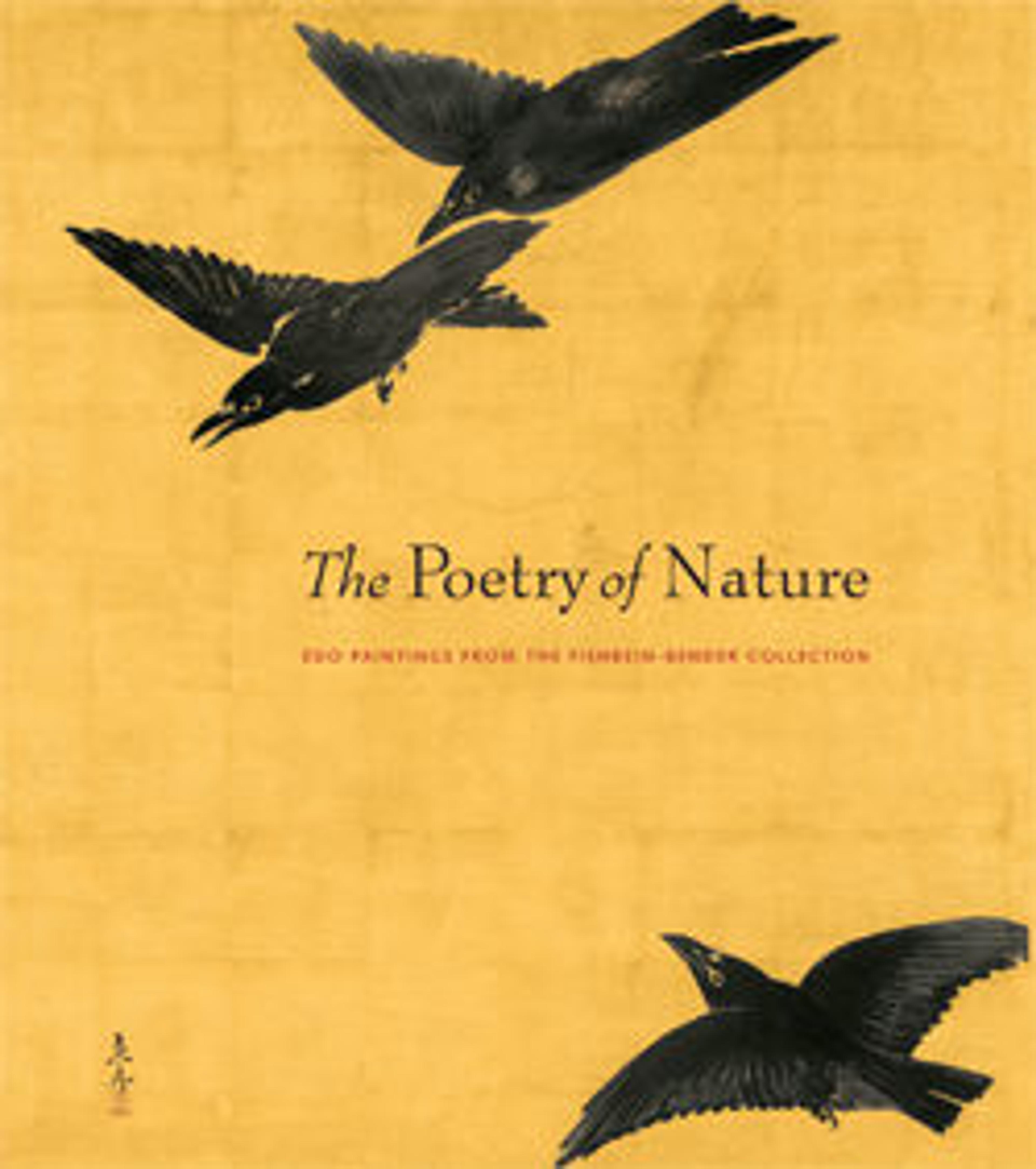Bean Vine
Itō Jakuchū, son of a greengrocer, used vegetables and plants as a personal iconography that almost always included a moral or religious meaning. This handsome sketch of a bean plant, paired with a poem by Ōbaku Zen monk Musen Jōzen (Tangai), refers to a story about the Chinese poet Cao Zhi (192–232), whose tyrannical brother, Cao Pei (Emperor Wen), once commanded him to compose a poem before he took seven steps, threatening him with execution if he failed. Tangai’s verse makes an erudite reference to Cao Zhi’s original poem comparing himself and his brother to the parts of a bean plant, while also alluding to the Zen philosophy of nonduality.
The green vine puts forth blossoms,
and its pods are like half-formed swords.
The bean and stalk are inseparable;
both were born from the same roots.
—Trans. John T. Carpenter
The green vine puts forth blossoms,
and its pods are like half-formed swords.
The bean and stalk are inseparable;
both were born from the same roots.
—Trans. John T. Carpenter
Artwork Details
- 伊藤若冲筆 無染浄善 (丹崖) 賛 豌豆豆図
- Title:Bean Vine
- Artist:Itō Jakuchū (Japanese, 1716–1800)
- Calligrapher:Inscribed by Musen Jōzen (Japanese, 1693–1764)
- Period:Edo period (1615–1868)
- Date:mid-18th century
- Culture:Japan
- Medium:Hanging scroll; ink on paper
- Dimensions:Image: 49 1/2 x 18 7/8 in. (125.7 x 47.9 cm)
Overall with mounting: 75 5/8 x 24 1/4 in. (192.1 x 61.6 cm)
Overall with knobs: 75 5/8 x 26 1/2 in. (192.1 x 67.3 cm) - Classification:Paintings
- Credit Line:Purchase, Lita Annenberg Hazen Charitable Trust Gift, in honor of Cynthia and Leon Polsky, 1985
- Object Number:1985.97
- Curatorial Department: Asian Art
More Artwork
Research Resources
The Met provides unparalleled resources for research and welcomes an international community of students and scholars. The Met's Open Access API is where creators and researchers can connect to the The Met collection. Open Access data and public domain images are available for unrestricted commercial and noncommercial use without permission or fee.
To request images under copyright and other restrictions, please use this Image Request form.
Feedback
We continue to research and examine historical and cultural context for objects in The Met collection. If you have comments or questions about this object record, please contact us using the form below. The Museum looks forward to receiving your comments.
